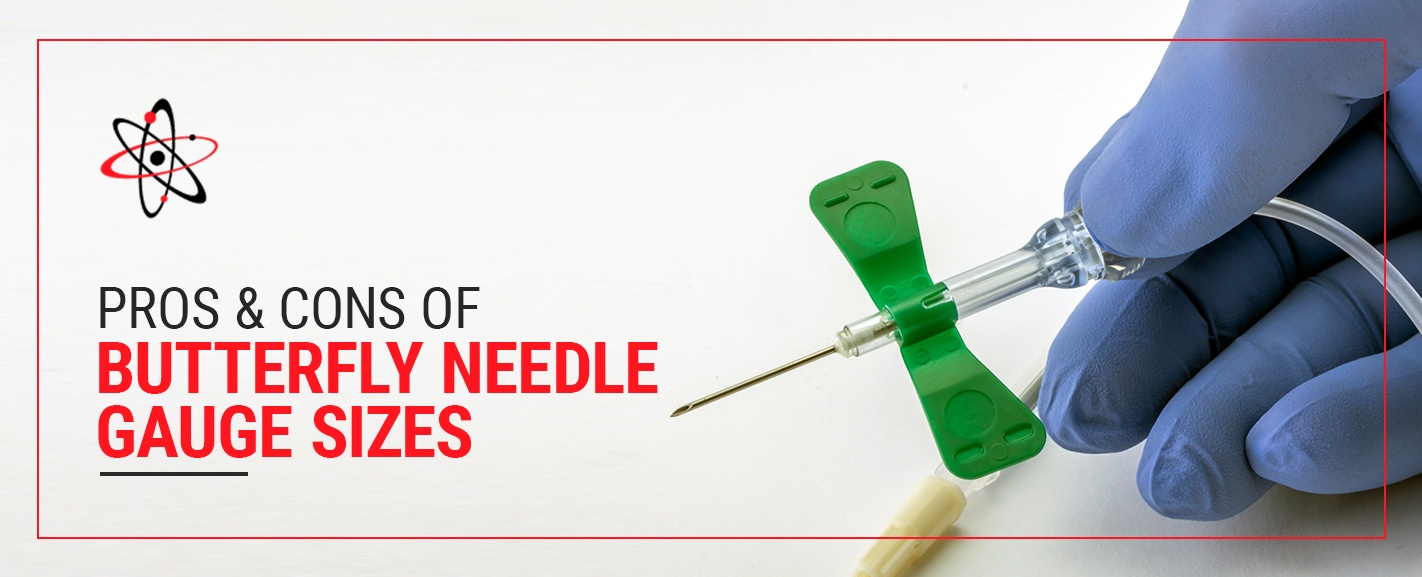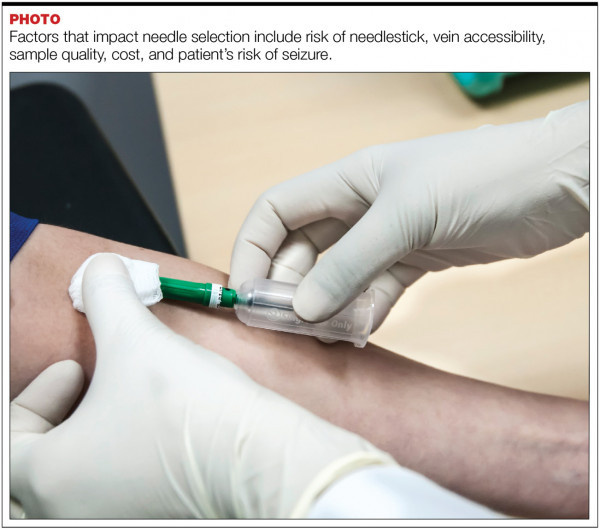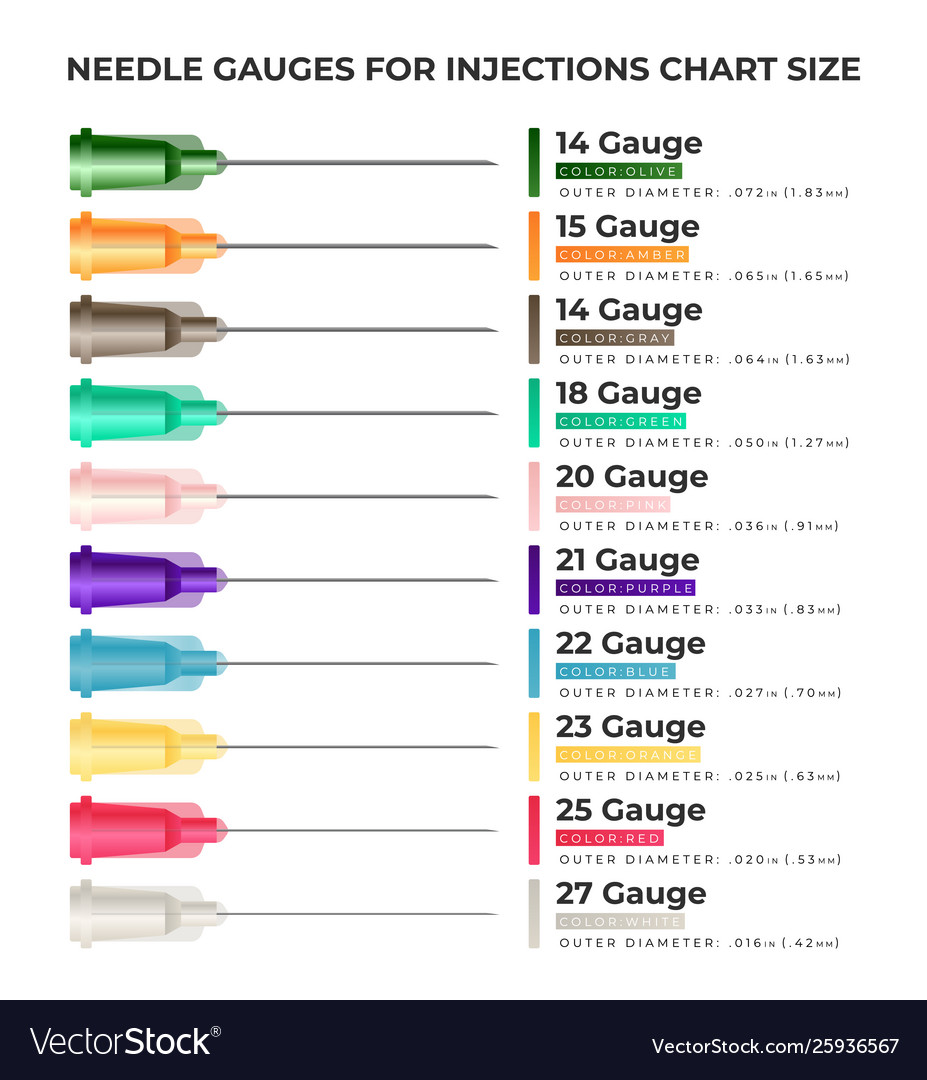Size Of Needles For Blood Draw
Size Of Needles For Blood Draw - Proper site selection, rotation, and care can help minimize trauma and keep your veins healthy, whether receiving a plasma or blood collection. The choice of gauge depends largely on the patient’s vein size and the viscosity of the blood. Phlebotomy needle sizes are typically indicated by a combination of the gauge and length. Referencing a phlebotomy needle size chart can help phlebotomists select the right needle size for various clinical scenarios. Web most butterfly needles range from 18 to 27 gauge. The family birthing centers at parkview regional medical center in fort wayne is. Web a phlebotomist has three needle options when doing venipuncture: Use of a retractable needle or safety needle with a needle cover is preferred if available). The gauge is small enough in which it does not cause any significant pain or discomfort during use. Naturally, preferences vary from practitioner to practitioner, but many phlebotomists prefer to use straight needles with adults. Web by understanding the different needle sizes and factors to consider when choosing a needle size, phlebotomists can ensure safe and efficient blood draws for their patients. In this article, we will discuss the importance of needle selection in phlebotomy and provide a needle size chart to guide you in choosing the appropriate needle for different types of blood draws. Web 21 firehouses from 11 to 8 seven days a week, and indiana hospital is now testing out a needle free blood draw. Those veins are usually big enough for the use of a 21 gauge needle. This size is also considered large and is commonly used for blood donations or blood transfusions. Ask the donor to open and close the. Most adults who are healthy have plump and bouncy veins. Web common lengths for phlebotomy needles range from 1 to 1.5 inches. The larger gauges are used for thicker blood or larger veins. Phlebotomy needle sizes are typically indicated by a combination of the gauge and length. They are easy and efficient for blood draws and allow for a deeper insertion than butterfly needles. Web below is a needle gauge chart showing the sizes of needles used for the evacuated tube system, syringe method, and the butterfly needle when performing venipuncture. Web 21g needles are the most common gauge of needles used for routine blood draws and. Web 21g needles are the most common gauge of needles used for routine blood draws and venipuncture. Most adults who are healthy have plump and bouncy veins. Web a phlebotomist has three needle options when doing venipuncture: Web most butterfly needles range from 18 to 27 gauge. Web choosing the right needle size is crucial for ensuring a successful blood. A “winged infusion” set is very similar to a butterfly needle. Naturally, preferences vary from practitioner to practitioner, but many phlebotomists prefer to use straight needles with adults. Web most butterfly needles range from 18 to 27 gauge. Identify the intended vein and select an appropriate needle gauge based on vessel size and fragility. Web the 21 gauge needle is. Web 21g needles are the most common gauge of needles used for routine blood draws and venipuncture. Naturally, preferences vary from practitioner to practitioner, but many phlebotomists prefer to use straight needles with adults. Multiple drawing (evacuated), hypodermic, or butterfly needles. Web butterfly needles come in various gauges, ranging from 18 to 27 gauge. In this article, we will discuss. The family birthing centers at parkview regional medical center in fort wayne is. Web common lengths for phlebotomy needles range from 1 to 1.5 inches. This size is also considered large and is commonly used for blood donations or blood transfusions. Most adults who are healthy have plump and bouncy veins. A butterfly needle consists of a very thin needle,. Proper site selection, rotation, and care can help minimize trauma and keep your veins healthy, whether receiving a plasma or blood collection. Web most butterfly needles range from 18 to 27 gauge. They are easy and efficient for blood draws and allow for a deeper insertion than butterfly needles. The larger gauges are used for thicker blood or larger veins.. Those veins are usually big enough for the use of a 21 gauge needle. The smaller the number, the larger the needle is. Web the 21 gauge needle is the standard gauge needle for drawing blood. Proper site selection, rotation, and care can help minimize trauma and keep your veins healthy, whether receiving a plasma or blood collection. Use of. Web the size of the butterfly needle is measured in gauges. Web butterfly needles come in various gauges, ranging from 18 to 27 gauge. Web the common butterfly needles are 1/2 to 3/4 inches long and come in a range of gauges, with 21 and 23 gauge the most frequently used. Multiple drawing (evacuated), hypodermic, or butterfly needles. The choice. Web while plasma needles are larger to allow for faster flow rates, blood draw needles are smaller and less damaging to veins with lower flow needs. The 21 gauge butterfly needle is one of the thickest options available, making it suitable for patients who require a larger needle size for blood collection. Web the still images of the assassination attempt. Opting for a smaller gauge needle can help reduce discomfort for patients with delicate veins. Web the size of the butterfly needle is measured in gauges. Those veins are usually big enough for the use of a 21 gauge needle. A “winged infusion” set is very similar to a butterfly needle. Web common lengths for phlebotomy needles range from 1. Web common lengths for phlebotomy needles range from 1 to 1.5 inches. It is commonly used for patients with normal to moderately fragile veins, as the thicker gauge can help with blood flow. This is the largest needle size commonly used for blood collection. Web select a needle gauge appropriate for the type of blood draw and the patient’s vein size. Web the 21 gauge needle is the standard gauge needle for drawing blood. Those veins are usually big enough for the use of a 21 gauge needle. The larger gauges are used for thicker blood or larger veins. The smaller the number, the larger the needle is. Ask the donor to open and close the. Web butterfly needles come in various gauges, ranging from 18 to 27 gauge. The 21 gauge butterfly needle is one of the thickest options available, making it suitable for patients who require a larger needle size for blood collection. While the size can vary, most needle sizes are 21 to 23 gauge. In this article, we will discuss the importance of needle selection in phlebotomy and provide a needle size chart to guide you in choosing the appropriate needle for different types of blood draws. Web the common butterfly needles are 1/2 to 3/4 inches long and come in a range of gauges, with 21 and 23 gauge the most frequently used. The higher the number is, the smaller or thinner the needle size is. The gauge is small enough in which it does not cause any significant pain or discomfort during use.Syringe and Needle Selection Guide by Burt Cancaster Phlebotomy study
Needle Gauge Size Chart E Phlebotomy Training
Butterfly For Drawing Blood Draw. Imagine. Create.
Proper Needle Selection for Blood Collection September 2019
Exel International MultiSample Blood Draw Needles Green Hub; 21 G x 1.
Pin on Being a Nurse
Needle gauges for injections chart size Royalty Free Vector
Images Of Blood Draw Needle Size
Phlebotomy Syringe Draw Procedure Blood Collection (RxTN) YouTube
Sterican Blood Drawing Needles Buy Here
It Is Often Used For Procedures That Require A Larger Amount Of Blood To Be Drawn Quickly.
Web Choosing The Right Needle Size Is Crucial For Ensuring A Successful Blood Draw And Patient Comfort.
Use Of A Retractable Needle Or Safety Needle With A Needle Cover Is Preferred If Available).
Web Most Butterfly Needles Range From 18 To 27 Gauge.
Related Post:









